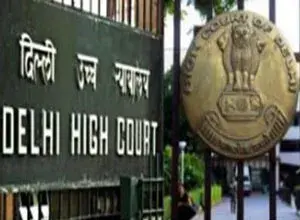By Priya Adlakha and Rima Majumdar
In the age of the internet, infringement of the intellectual property of brands has taken a new look, i.e. in the form of online counterfeits and fake websites. Due to the mushrooming of such new-age infringers, who more often than not, are extremely hard to catch, it has become important that the Courts tackle them in a new-age manner.
Recently, a single bench comprising of Hon’ble Mr. Justice Navin Chawla of the Delhi High Court was faced with a similar situation in the case of New Balance Athletics Inc. vs. Ashok Kumar trading as www.myshoeshop.in & Ors.[1]and passed an ex-parte ad-interim injunction in favor of Plaintiff vide order dated August 03, 2022.
The Plaintiff’s case
The Plaintiff, New Balance Athletics Inc, is an American corporation, engaged in the business of design, manufacture, marketing, and sale of footwear under its trademarks NEW BALANCE, NB Device mark, and the N device mark, since 1970. Its products are sold through retail stores owned and/or operated by Plaintiff, through franchisees, department stores, and e-commerce sites.
In India, Plaintiff has been using its marks New Balance and N Device since 1986, and the NB Device mark since 1987. The trademarks of the Plaintiff are also registered in India. Furthermore, through a franchise agreement with a leading Indian party, Plaintiff operates its stores in India.
It is the case of Plaintiff that Defendant no. 1, openly proclaims on its website www.myshoeshop.in that it sells ‘first copy’ of shoes of the Plaintiff as well as other well-known brands, such as Adidas, Louis Vuitton, Nike etc. at highly discounted prices. In support of its argument for grant of injunction orders, the Plaintiff also relied upon orders granted in the past by co-ordinate benches of the Delhi High Court, wherein protection against similar activities was granted.
The Court’s order
Upon hearing the Plaintiff’s submissions, the Court was of the view that a prima facie case has been made out for grant of injunction by the Plaintiff. Furthermore, the Court also held that the balance of convenience was in the favour of the Plaintiff and irreparable loss would be caused to the Plaintiff and the consumers, if the Defendant no. 1 is not restrained by an ad-interim injunction from continuing with their web portal.
Additionally, considering the fact that the Defendant is violating the trade mark rights of other well-known brands as well, in addition to the Plaintiff, the Hon’ble Court also directed the Defendant no. 2 (apparently a Domain Name Registrar) to provide contact details/addresses of the proprietor/registrants of the website myshoeshop and de-activate/block the said website till further orders. Defendants 7 and 8(their names are not mentioned in the order, but apparently Meity and DoT) were also directed to issue necessary directions for blocking of the said website forthwith.
Furthermore, since Defendant no. 1 was also offering the counterfeit goods in question, through its mobile numbers, the Court also directed Defendant nos. 4 and 5 (Telecon and Internet Service Providers apparently) to provide details of the subscribers of the telephone numbers along with the KYC documents. Defendant no. 6 (apparently Instagram) was directed to block Defendant no.1’s Instagram page under the name @myshoeshop.
Author’s note: This order comes at a time when the Courts are flooded with cases of fake and fraudulent websites offering dealership/franchisee of well-known Indian and International brands and sale of counterfeit luxury goods through online portals, wherein the Defendants take cover under the anonymity provided by the internet, to do their activities. Although in the present case, Defendant no. 1 has out rightly admitted to selling counterfeits, by mentioning on its website that it sells the ‘first copy’ of well-known brands. However, in most cases of counterfeiting, be it online or offline, it has to be prima facie established by way of test purchases, that the goods offered by the opposite party are fake.
It will not be an exaggeration to say that most instances of the sale of counterfeit luxury goods on the internet are either on account of customer confusion and deception with regard to their origin or under the misconception of a claim called ‘first copy’, which by its very definition means something that is nor original, as a ‘copy’ is a ‘copy’.
Having said that, orders like these set a good precedent for future litigants as well, who are tackling situations of a similar kind.
A similar order for blocking of fraudulent domains of Dabur offering fake jobs was passed by a Single Bench of HMJ Prathiba M. Singh on March 03, 2022. You can read our take on the said order from here.
[1] CS(COMM) 531/2022
Related Posts
Insufficient Similarity, No Infringement: Soothe Healthcare Private Limited v. Dabur India
Intellectual Property and Combating Counterfeiting and Piracy in Digital Environment


